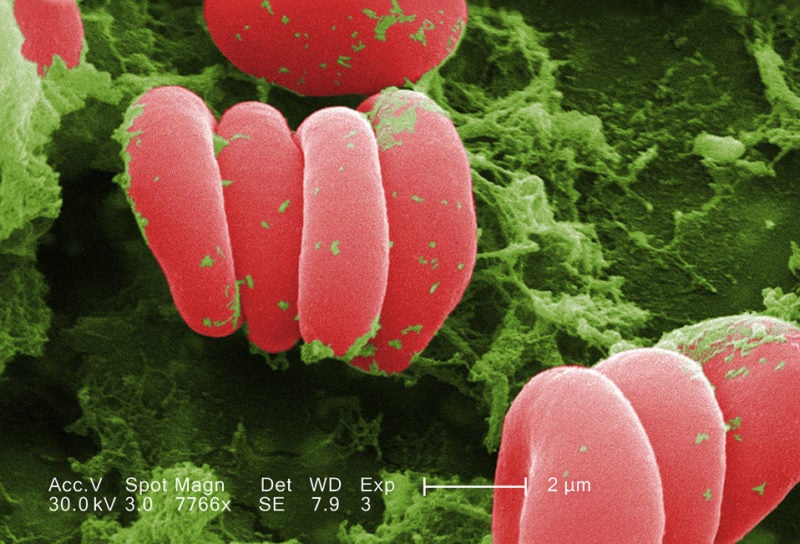On 27 November, Bayer announced EU approval of Jivi (damoctocog alfa pegol; antihemophilic factor [recombinant], PEGylated) for on-demand treatment, perioperative management, and prophylactic treatment in previously treated adolescent and adult patients with hemophilia A.
This is a major step forward for Jivi following its US, Canada, and Japan approvals in August, October, and September, respectively. Jivi is the third, and highly anticipated, hemophilia A treatment in Bayer’s portfolio, after Kogenate (octocog alfa; antihemophilic factor [recombinant]) and Kovaltry (antihemophilic factor [recombinant]). The hemophilia trio boasted combined global sales of €639m ($726M) by Q3 2018, although this was 14.8% lower than the same time last year. GlobalData predicts sales of Jivi alone in the 7MM (US, France, Germany, Italy, Spain, UK and Japan) to reach $273m in 2026.
Jivi received EU approval based on results of the Phase II/III PROTECT VIII trial, in which prophylactic dosing, on-demand treatment, and perioperative management were assessed in patients. Good bleed protection was demonstrated in 74% of patients who were treated once weekly with Jivi, and 100% of patients who were treated every five days. Patients also demonstrated a good safety profile of up to a median of 1.9 years and none developed neutralizing inhibitors against the recombinant Factor VIII (rFVIII) replacement therapy.
Haemophilia A treatment options: how do rFVIII therapies stack up?
FVIII replacement therapy consists of on-demand or prophylactic intravenous infusions to replace the missing or deficient levels of FVIII, and is the standard of care for the control or prevention of bleeding episodes in hemophilia A patients. The treatment landscape is currently dominated by rFVIII replacement factors, the majority of which are short-acting.
However, Jivi joins a growing market of long-acting rFVIII therapies that extend the half-life of these factors and allow for less frequent dosing, such as Bioverativ’s Elocta/Eloctate (antihemophilic factor [recombinant], FcFusion protein), Shire’s Adynovate/Adynovi (rurioctocog alfa pegol; antihemophilic factor [recombinant], PEGylated) and CSL Behring’s Afstyla (antihemophilic factor [recombinant], single chain).
The recommended initial prophylactic regimen for Jivi is twice weekly, with the ability to dose every five days or longer, as adjusted for individual needs based on bleeding episodes, making it comparable to Elocta/Eloctate’s administration every four days.

US Tariffs are shifting - will you react or anticipate?
Don’t let policy changes catch you off guard. Stay proactive with real-time data and expert analysis.
By GlobalDataLike Adynovate, Jivi uses PEGylation to achieve an extended half-life of 17.9 hours to sustain high levels of FVIII. PEGylation involves the covalent attachment of polyethylene glycol (PEG) to the protein of interest, increasing its molecular weight and size and creating a hydrophilic cloud around the molecule. These changes may alter the half-life by reducing the susceptibility of the molecule to proteolytic activity and degradation.
Long-term use questionable
However, the long-term use of these products has been questioned, particularly since large PEGs are not metabolised by the human body and therefore may incur safety issues due to the longevity of PEG in the body. Further, PEGylation is thought to change the surface charge of the protein, which interferes with some receptor-mediated clearance processes. Experts interviewed by GlobalData expressed contrasting opinions on the PEGylation strategy, as used in Adynovate, Jivi, and Novo Nordisk’s pipeline product N8-GP (turoctocog alfa pegol), but the majority suggested that they would prefer to rely more on the non-PEGylated products, such as Elocta/Eloctate, to avoid potential safety issues.
Jivi is a late entrant to the long-acting hemophilia A market segment, a disadvantage for its commercial positioning. GlobalData expects the loss of the early-to-market advantage to negatively affect its uptake. Since it does not offer a more convenient dosing schedule, it will struggle to compete with the established long-acting factors for patient share, such as Elocta/Eloctate and other non-factor replacement therapies.
Roche’s recently approved Hemlibra (emicizumab) is an example of a non-factor replacement strategy, which controls bleeding episodes through a different mechanism of action. Hemlibra is also expected to decrease the overall sales for the entire category of rFVIIIs. GlobalData believes that Bayer can soften these impacts by exploiting its presence in the hemophilia A market, with Kogenate FS and Kovaltry in its portfolio, to encourage uptake of Jivi among accustomed patients and gain a significant share of hemophilia A patients.





